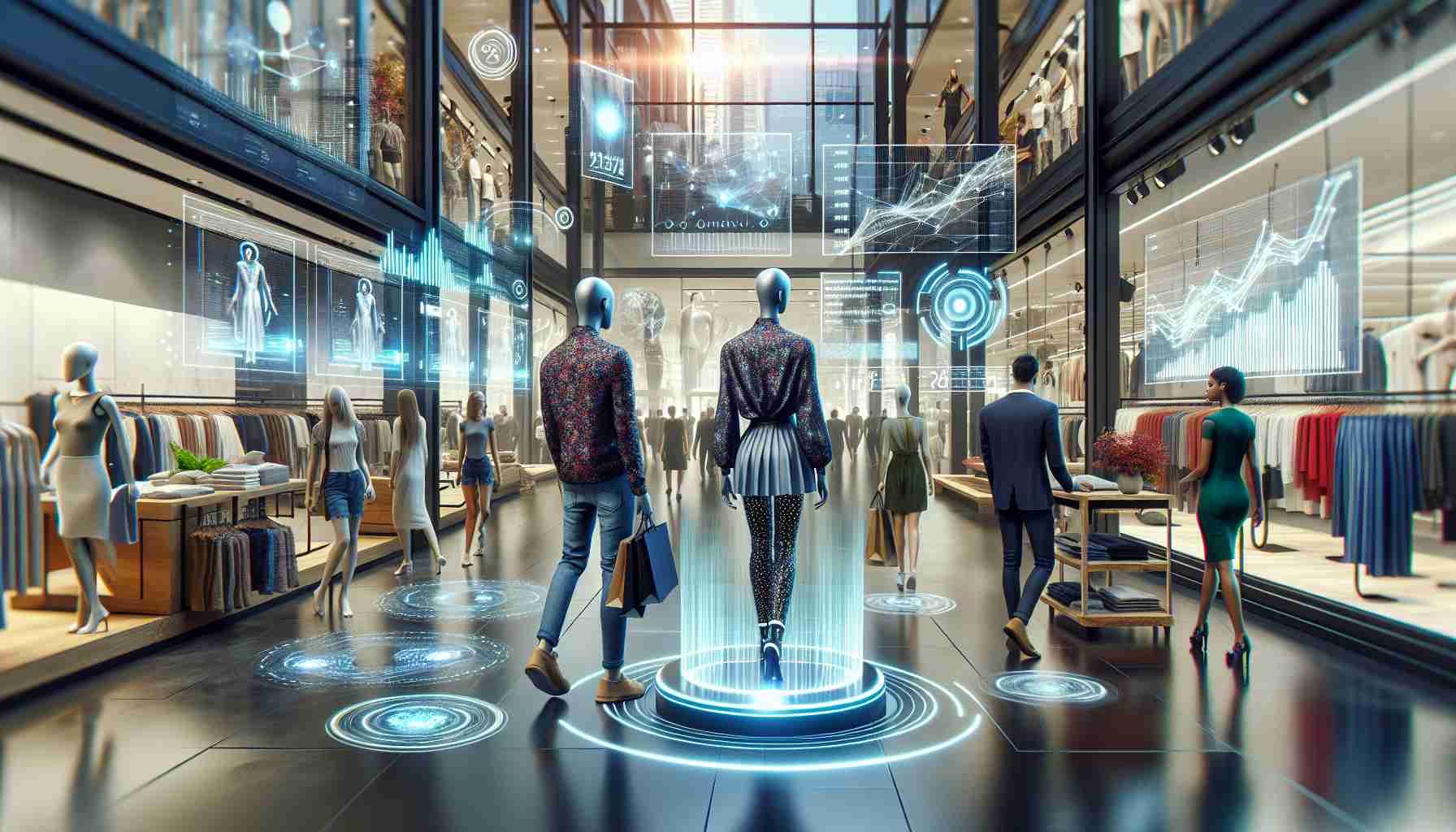Redefining the Fashion Industry with Advanced AI Integration
Urbanic, a fashion retail brand, is at the helm of a revolution in customer interactions, leveraging the power of artificial intelligence (AI) to deliver highly personalized shopping experiences. In a comprehensive interview with Rahul Dayama, the Founding Partner of Urbanic, the brand’s commitment to nurturing a unique interaction between customers and fashion through AI is emphasized.
The brand’s pioneering AI technology studies individual customer histories, preferences, and styles to propose custom fashion choices, enhancing the consumer journey. This initiative by Urbanic is setting a new standard in fashion retail, driving customer satisfaction and increasing conversion rates as AI algorithms offer actionable insights into consumer behaviors and style inclinations.
Utilizing generative AI, Urbanic designs real-time predictive models which serve up suggestions well-aligned with consumers’ previous purchases and style preferences. Dayama points out that this not only refines the shopping experience but also streamlines the supply chain, predicting demand with greater precision.
Boosting Engagement with AI-Driven Personalization
The implementation of Urbanic’s AI platform has led to tangible results: heightened customer satisfaction, surged conversion rates, and improved shopper retention. The virtual bot agents swiftly address inquiries, fostering a more efficient resolution process while AI-driven analysis brings forth valuable consumer insights.
Overcoming AI Integration Challenges
Urbanic initially faced the complexities of integrating AI with customer service amidst a digital shift hastened by the pandemic. Customers’ growing expectations for digital channel efficiency for complex issues posed a grand challenge. Urbanic conquered these challenges by investing in technology, developing conversational AI services and predictive models that meticulously cater to consumer desires.
Commitment to Data Privacy and Future Endeavors
Transparency remains a priority for Urbanic as they uphold rigorous data policies to protect customer information, ensuring ethical AI use. Dayama underscores the brand’s continuous effort towards tech enhancements, including the adoption of large language models and AI-generated content to further refine design processes and personalization.
With advances in AI and a focus on sustainable growth, Urbanic is poised to consistently lead innovation in fashion e-commerce, enhancing the way consumers engage with brands and select their attire.
Given the context of the article on Urbanic Pioneers AI-Powered Fashion Retail Advancements, here are additional relevant facts, important questions with answers, challenges or controversies, and advantages and disadvantages associated with AI in fashion retail:
Additional Relevant Facts:
– AI in fashion can include chatbots for customer service, recommendation engines, inventory management, and even design elements where AI could suggest new patterns or designs based on current trends.
– AI helps in identifying and predicting fashion trends by analyzing large sets of data from various sources including social media and runway shows.
– Personalization powered by AI extends beyond product recommendations to personalized marketing, where promotions and ads are tailored to individual consumer preferences and behaviors.
Important Questions and Answers:
– Q: How does AI improve inventory management in fashion retail?
– A: AI improves inventory management by predicting trends, optimizing stock levels, and reducing waste through demand forecasting which ensures that retailers stock items more aligned with expected consumer purchases.
– Q: Can AI replace human creativity in fashion design?
– A: While AI can suggest design elements based on data, it still lacks the human element of creativity. AI is best used as a tool to augment human designers by providing them with data-driven insights.
Key Challenges or Controversies:
– Ethical concerns around data collection and user privacy are paramount since AI systems require large amounts of data to be effective.
– There is a potential risk of homogenization of styles and reduction in the diversity of fashion offerings if AI algorithms dictate design and purchasing options based solely on predictive analytics.
– Job displacement is a concern as AI becomes more capable of handling tasks traditionally done by humans in fashion retail, such as customer service and even some design aspects.
Advantages:
– Increased efficiency in supply chain management and inventory optimization.
– Enhanced customer satisfaction due to personalized experiences and improved customer service through chatbots.
– Potential for increased revenue as AI helps to identify and capitalize on trends more rapidly, leading to better sales predictions and decreased inventory wastage.
Disadvantages:
– Initial high costs and complexity of integrating AI into existing systems.
– Potential loss of human jobs as AI takes over more functions within the retail space.
– Risk of over-reliance on AI predictions which may overlook niche markets or emerging trends not yet represented in data.
For those interested in exploring more about this topic, you might visit the main websites of leading AI and fashion retail companies by searching for their official URLs online. Please ensure you are accessing legitimate and official company websites.
In the exploration of AI advancements in the urban fashion industry, Urbanic stands as a case study on how technology can be harnessed to not only boost business performance but also enrich the customer experience.

